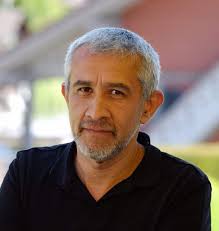أن تغطِّي الصحافة أي صراع مسلَّحٍ، يعني أن ينتقل الصحفيون بين أخبار غير مؤكدة وأخرى زائفة، بين روايات رسمية متحيّزة وأحكام اجتماعية مسبقة، وأن تصطدم بعقبات كثيرة بهدف الوصول إلى المصادر.
في الحالة الكولومبية، استمر الصراع المسلح بين جيش التحرير الوطني المعروف اختصاراً باسم "إي.أل.أن" (ELN) والحكومة الكولومبية. ربما يكون هذا الجيش أقدم مجموعة مسلحة ما زالت تسيطر عليها العائلات نفسها منذ سنوات عديدة.
منذ خمس سنوات، كان لقائي الصحفي الأول بتلك المجموعة. في ذلك الوقت، كانت عملية السلام في مراحلها الأولى. نظرة المجتمع للجيش كانت محاطة بالأساطير، فقد كانت الحكومة قد نجحت في تحجيمه حتى أصبح هامشياً. وفي الوقت نفسه، كان هناك حوار مع القوى المسلحة الثورية الكولومبية (فارك)، وكان محاربوها قد سُرِّحوا منذ عامين.
بعد خمس سنوات أستطيع القول إنني أتمتّع بفهم أفضل لجيش "إي.أل.أن" ومقترحه للسلام، لكن عليّ الإشارة إلى أن الجيش تغيّر أيضا. فالمنظمات تغيّر نهجها نتيجة للهزائم العسكرية والتغيرات السياسية وعمليات المفاوضات، وهو ما ينطبق على الصحفيين، إذ يغيرون نهجهم بناء على تجاربهم.
إن أكثر خطر يواجه الصحفيين هو بقاؤهم محاصرين بصورة واحدة لمنظمة ما، دون ملاحظة التغيرات الطفيفة واليومية التي قد لا نلتفت إليها أحيانا. كانت أولى المهام هي مقاومة الأحكام المسبقة: الحرب ضد الإرهاب مثلا، تجعلنا نفكر أن المنظمات المسلحة "إرهابية"، وبعض الأكاديميين يقللون من تعقيدات الحروب ويختزلونها في أسباب دينية وثقافية أو يحيلونها إلى جشع الإنسان.

لا يمكن الاقتراب من العناصر المسلحة بشكل سريع أو مختصر، ولا يمكن أن يعتمد الصحفي في عمله على الرواية التي يوفرها أعداء تلك العناصر.. يتطلب الأمر مجهودا كبيرا يبدأ من لقائهم وإجراء الحوارات معهم في الجبال.. التأمل كثيرا، ثم قراءة وثائقهم الرسمية العامة لاكتشاف منطقهم الداخلي.
تجدر الإشارة إلى أنه حين بدأتُ بحثا معمقا عن هذه المنظمة، كان معظم الصحفيين والأكاديميين مشاركين في المفاوضات (الجارية حتى اليوم) بين الحكومة ومنظمة الفارك. وقد اقترح كثيرون أن على جيش "إي.أل.أن" أن يسلك نفس الطريق الذي سلكته الفارك. في عام 2018، وفي العاصمة الكوبية هافانا، ذكّرني زعيم جيش التحرير الوطني بابلو بيلتران: "منذ أربع سنوات كان الجميع يقولون لنا: افعلوا ما فعلته الفارك.. اليوم يقولون لنا: لا تكرروا أخطاء الفارك.. تعلموا من هذه العملية".
التعامل مع العناصر المسلحة في كولومبيا كان عملية ذات اتجاهين، فمن ناحية، كان لا بدّ لي من تغذية الثقة بيني وبينهم، وفي الوقت نفسه، المحافظة على الروح النقدية. ما يزيد من حجم التوتر في طرق الرواية الصحفية، أن الرواية الرسمية الكولومبية تزودنا بأخبار تطلّب الأمر منا سنوات للتأكد منها.. أخبار عن حرب عصابات ارتكبت خلالها جرائم عدة في بلد مثل كولومبيا تغيب عنه العدالة والإنصاف. الثقة التي بنيتها مع أفراد وقادة تلك جيش التحرير سمحت لي بإجراء العديد من اللقاءات الحصرية مع محاربيه المتهمين دوما من قبل الحكومة. إلّا أن ذلك ولّد مشاكل كثيرة، ففي كولومبيا تحتمل التقارير النقدية كثيرا من التفسيرات الخاطئة.
كما ذكرت سابقا، هناك الكثير من الأحكام المسبقة عن جيش "إي.أل.أن"، مثل أنه منظمة مشتتة تفتقر إلى القيادة، وأنه مجموعة من مهربي المخدرات في الأساس، وأن لديه عشرات المختطفين، ويسيطر على كل الحدود بين كولومبيا وفنزويلا.. إلخ.
كان التحدي إذا في هدم الأساطير، والتواصل المستمر مع الناطق الرسمي للجيش. كان ذلك أمرا معقدا، على اعتبار أن جيش "إي.أل.أن" مجموعة محاربة، وقد بقي دون صوت لسنوات طويلة منذ تأسيسه، ولم يطوّر إستراتيجية إعلامية إلا في السنوات الأخيرة. وقد أثمر لقائي معهم في الجبال عن عقد مؤتمرات أكاديمية في المدن الكولومبية، والاشتراك في برامج تقدم تحليلات سياسية جديدة، لأن الدفاع عن مهنة الصحافة يتضمن أيضا الوقوف في وجه الأحكام المسبقة حول النزاع الكولومبي.
واحدة من المقابلات الجريئة أجريتها مع أنطونيو غارسيا قائد "إي.أل.أن"، وتم اللقاء في منطقة ريفية بكولومبيا. كان غارسيا قد قضى سنوات دون أن يجري أي مقابلة تلفزيونية، واتفق معي على ألا تحتوي المقابلة على أية مواضيع محظورة. تمت المقابلة بشكل ممتاز وباحترام متبادل، وعززت من أعمال سابقة لي كنت قد أنجزتها عن حزب الله والمجموعات الفلسطينية والجيش السوري الحر ومحاربي الفلبين.
وحين فُتحت طاولة الحوار -بطريقة عامة ورسمية- بين الحكومة وجيش "إي.أل.أن"، فقدت المقابلات الحصرية امتيازها، إذ أصبح الوصول إلى وفد جيش التحرير سهلا جدا.. يكفي أن تستقل الطائرة من كولومبيا إلى الإكوادور، وفي أقل من ساعة ستكون في مقر الجيش لطرح جميع الأسئلة المتعلقة بالقضية. كان التحدي مختلفا، وهو التركيز على تحليل ما هو أبعد من الأخبار الآنية، وعقد اجتماعات سرية مع كلا الطرفين، وطرح السؤال الحاسم عند الضرورة.
متابعة الصراع الكولومبي أثمرت عن صدور أكثر من كتاب لأهداف أكاديمية. بيد أن تلك الحالة ما هي إلا انعكاس اهتمام مصطنع من قبل الصحفيين والأكاديميين، إذ كانت حالة معتمدة على الحكم المسبق والتحيز وتذهب في اتجاه مفاده أن الأكاديمي يقول حقائق مطلقة، بينما يصف الصحفي أحداثا معزولة. في رأيي -وهو رأي أكاديمي قبل كل شيء، ومع تقديري للجامعات- فإن الأكاديمي الجيد هو الذي يجري عمله في الميدان ويقترب من أبحاثه من عمل الصحفي.
هذا العام، وبمناسبة تحرير جيش "إي.أل.أن" ستة سجناء اعتقلهم في منطقة ريفية، واتهمهم بأنهم كانوا ينفذون مهمات تجسسية، كانت لديّ فرصة لتغطية كل عملية التحرير. إن أكثر الأمور إيجابية في تلك العملية هو النقاشات وجها لوجه في غابات كولومبيا مع القادة المحاربين وسط العمليات العسكرية. أما أكثر الأمور سلبية، فهي التحذيرات الحكومية التي عملت جاهدة على إظهار تلك المجموعات للصحفيين المرافقين لمفاوضات السلام؛ على أنها "إرهابية".
عملية السلام غيرت الجانبين، وزادت من تواصل تلك المجموعة مع الصحافة.
لم يعد مهما إذا الوصول إليهم في الجبال للاطلاع على أحوالهم أو إجراء حوارات معهم، بل بات المهم في هذه المرحلة، القدرة على مناقشة أشياء جوهرية معهم، إضافة إلى آراء الناطقين الرسميين الحكوميين لمفاوضات السلام، ومرافقي المجتمع الدولي.
كان الروائي والصحفي الكولومبي الحائز على نوبل للآداب غابرييل غارسيا ماركيز، يقول إن الحكمة تصلنا حينما تصبح بلا فائدة. مضت خمس سنوات منذ أن بدأت هذه المرحلة الجديدة من تغطية المفاوضات بين الحكومة وجيش التحرير الوطني "إي.أل.أن".. هناك الكثير من الملاحظات والمقابلات والتقارير، وتحليل عن هذه الحرب. أيضا هناك الكثير من الموتى. واليوم اتضحت أمور أكثر عن دور العمل الصحفي في تغطيات الحروب وبناء السلام. مع هذا، فالأخطاء التي حدثت لا يمكن تصحيحها.
لا يهم إن كان ماركيز على حق.. دعونا نطبق ما قاله أنطونيو غرامشي على العمل الصحفي: "نحن متشائمون في ما يتعلق بالذكاء، متفائلون فيما يتعلق بالإرادة".


















![Palestinian journalists attempt to connect to the internet using their phones in Rafah on the southern Gaza Strip. [Said Khatib/AFP]](/sites/default/files/ajr/2025/34962UB-highres-1705225575%20Large.jpeg)





















